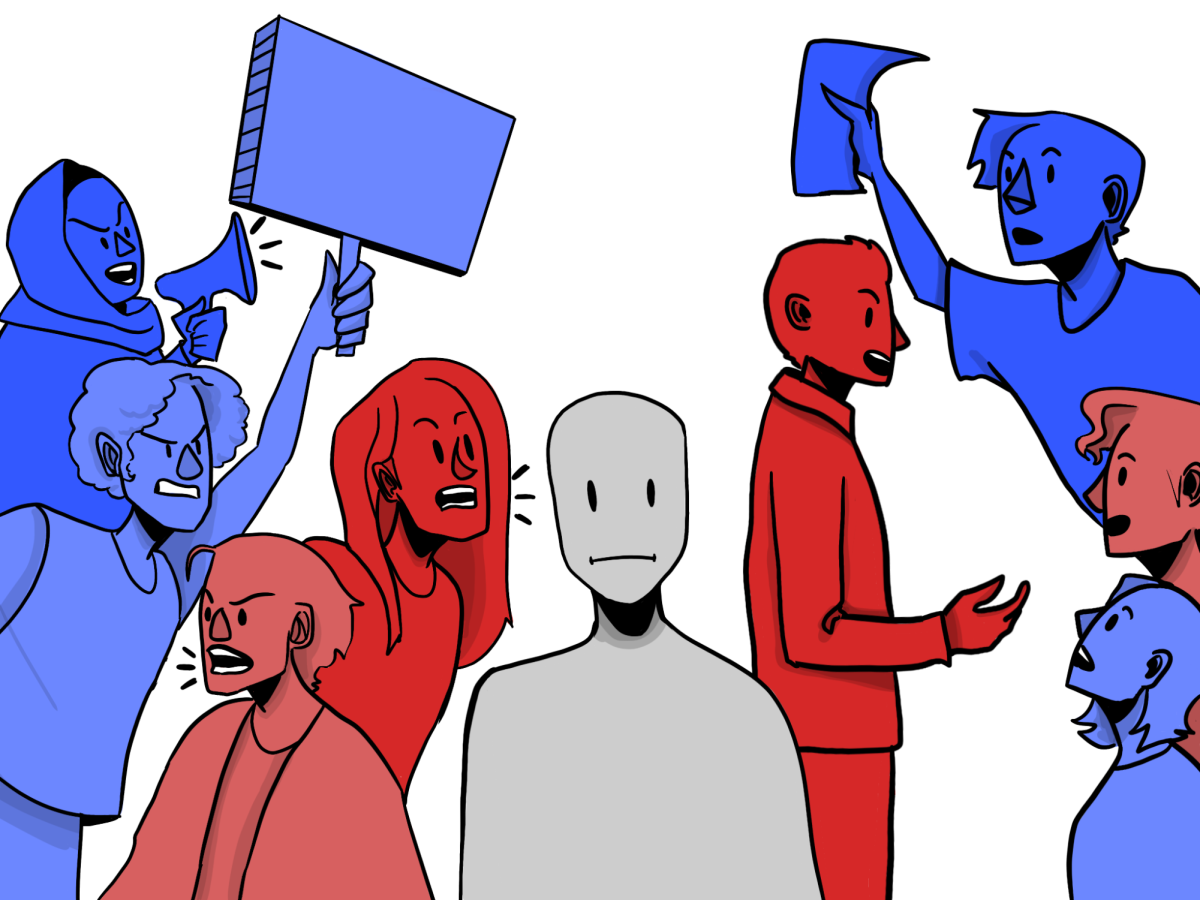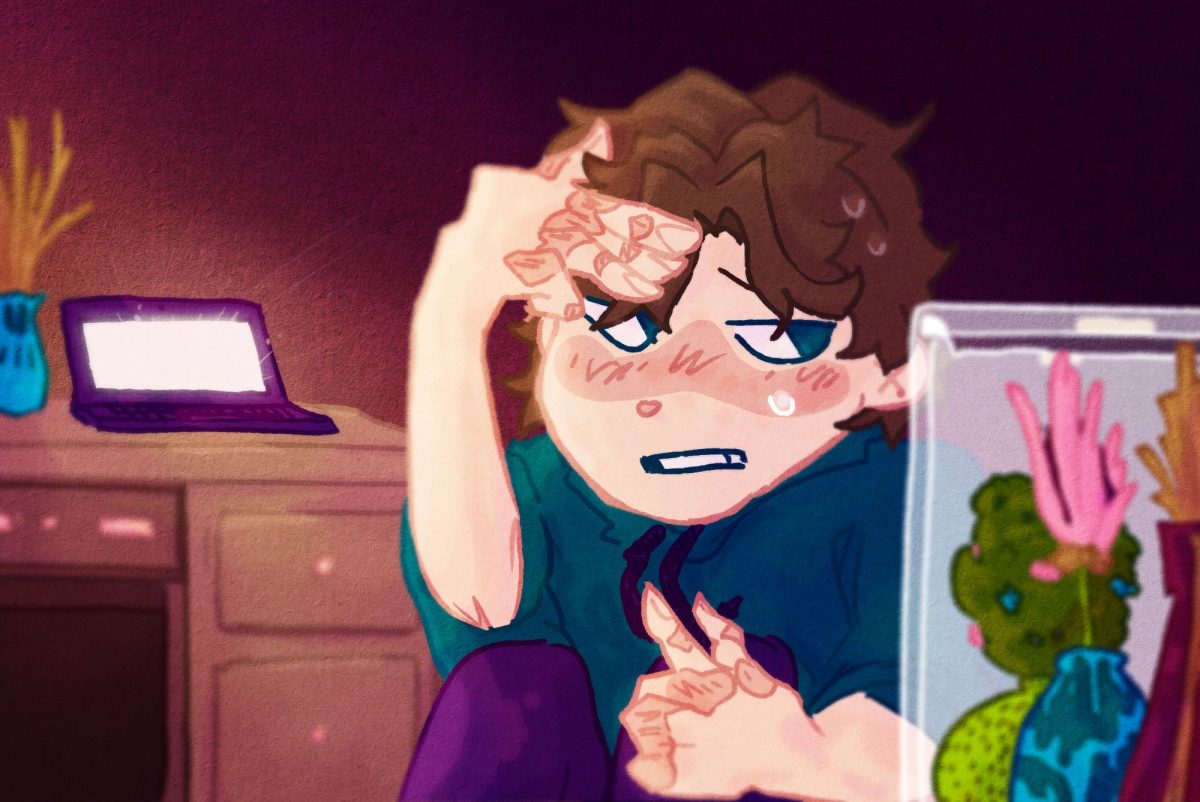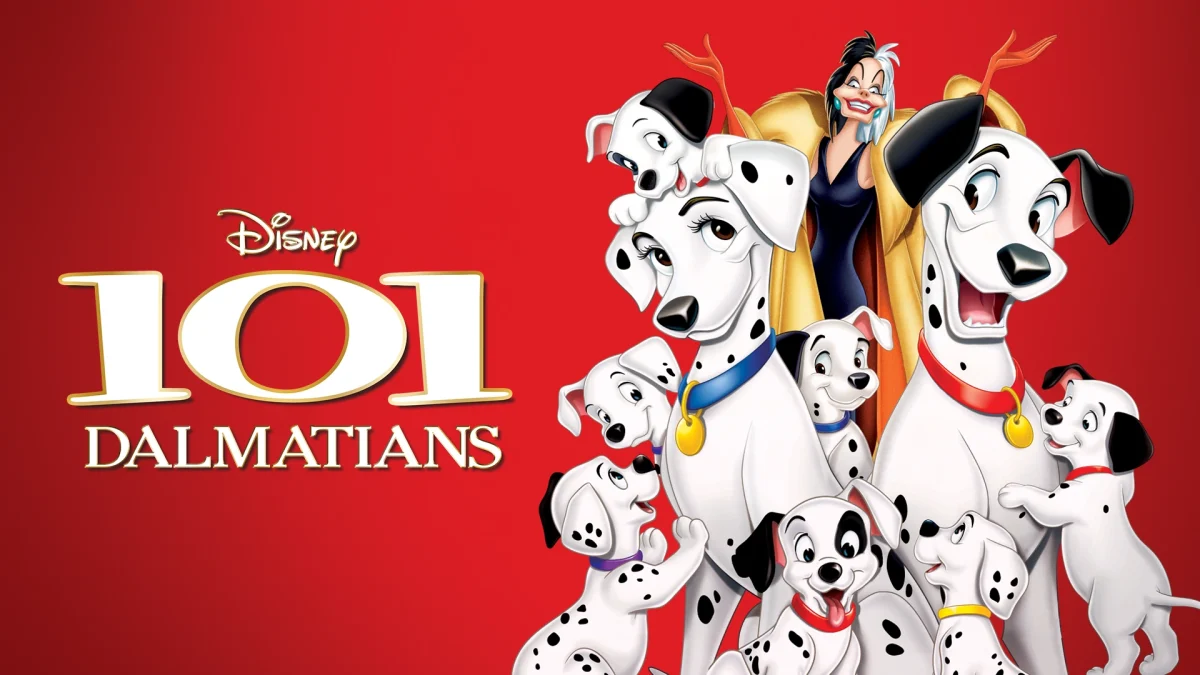There is little in this world that divides people more than politics. Riots break out in the streets over political issues; things can even turn ugly at the Thanksgiving dinner table when political subjects inevitably come up. As exasperated grandmothers yell at fired-up aunts and uncles holding a shouting match over the mashed potatoes, their kids share a glance that says “these people are crazy.”
Although political views seem to divide more than they unite, my least favorite political opinion is not from a crazy relative, but rather from the person sitting in the other room, not participating on either side of the debate or even listening to the differing opinions. It’s the person who refuses to watch the news or form a political opinion of any sort; the one who has never voted in their life and never plans to do so. The apathy of this person irritates me, yet this person used to be me.
For the large majority of my life, I’ve hated politics and any talk of it. Any friendly conversation about politics seemed to turn to a shouting match or an impassioned debate about issues I didn’t understand and didn’t wish to. After hearing one neighbor describe how her lifelong friend became persona non grata due to her controversial Facebook posts on political issues, I essentially swore off politics. It just didn’t seem worth all the strife.
As I entered high school, understanding the American government suddenly became extremely important to me. And yes, that’s probably because I wanted an A in my US History class, but regardless of the reason, my sudden fascination with history and politics opened a door for me. I joined Youth and Government, a school club focused on getting students interested in politics, and my curiosity only grew. Now I sit in a government class for less than one hour a day, but those hours have added up to a clearer understanding of American government and how the system works (or sometimes, doesn’t work). I’ve started forming my own ideas and thoughts about current issues.
Politics are important. Understanding how our government functions is important. Having a political opinion, no matter where it lies on the political spectrum, is important. Politics dictate our life to some degree, and we should understand how and why. Voting is essential to democracy, but voting without understanding candidates’ policy agendas or what a proposed law will do is a wasted vote. The decisions made by people in office affect the lives of everyone they represent, including you, so make sure your decision to support them is the right one.
There are plenty of things wrong with politics. Corruption runs rampant and sometimes it seems that representatives are better at representing who has the most money rather than who voted them into office. That being said, political scandals will always sell more papers than a summary of a perfectly respectful and efficient debate in Congress. What we see on a daily basis is not always representative of what happens. But even if our process is a messy one, that makes it even more necessary for us to be aware of what’s happening around us.
Deciding that politics don’t matter is writing off the entire democratic process as unimportant; it’s deciding that the future of the nation is not worthy of your time and attention. Being interested in politics doesn’t mean you have to adopt a radical political opinion or make every conversation into a heated policy debate, but it does mean that you should watch the news every once in a while, read about current events, and keep yourself engaged with the political processes of the country and the world. The American government is designed to give citizens a voice; why not use it?










